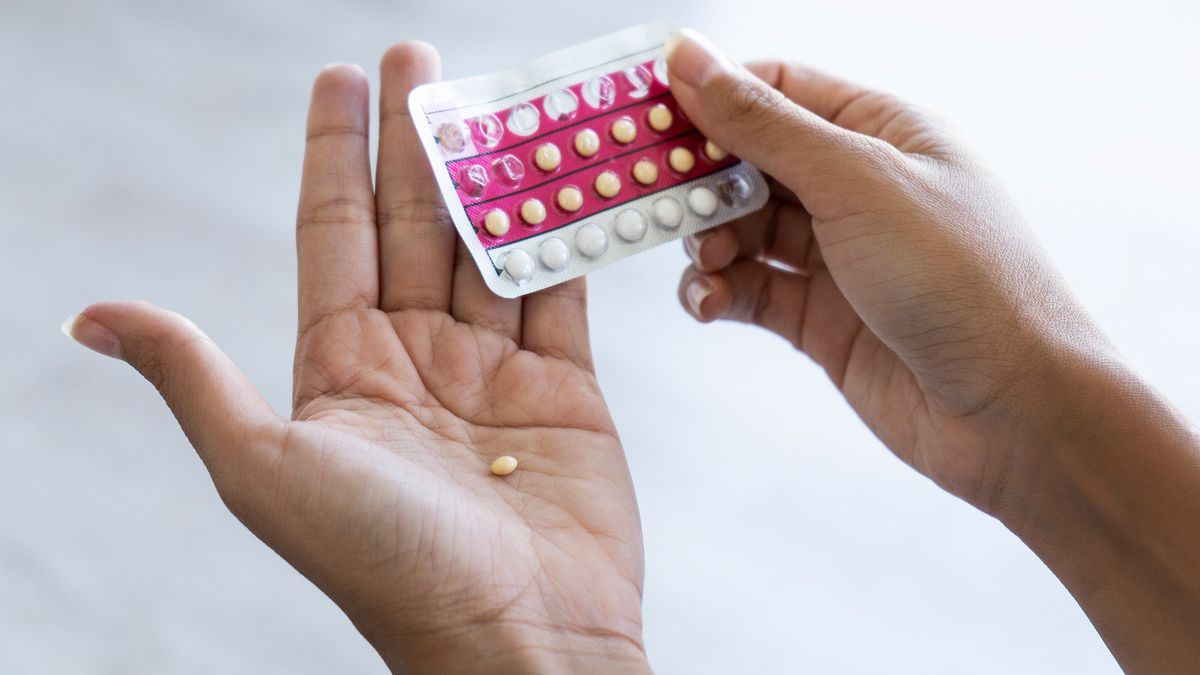Using hormonal birth control methods may significantly increase a person’s risk of experiencing a stroke or heart attack, with some methods carrying higher risks than others, a recent large study has found.
“Our study analyzed nationwide data from over 2 million women in Denmark to assess the risk of stroke and heart attack among users of various hormonal contraceptives,” first study author Dr. Harman Yonis, a doctor at Nordsjællands Hospital and doctoral study at the University of Copenhagen, Denmark, told Live Science in an email.
“We found that most forms of hormonal contraception … were associated with an increased risk of arterial blood clots,” Yonis said, with the exception of intrauterine devices (IUDs). Such blood clots in arteries can cut off blood supply to the brain or heart, leading to stroke or heart attack, respectively.
Hormonal birth control releases synthetic forms of female sex hormones, such as progestin, which mimics the hormone progesterone, and synthetic versions of estrogen. These medications and implants alter the monthly menstrual cycle and prevent pregnancy, usually by stopping the body from ovulating, or releasing an egg.
Related: Young women may be likelier to die after heart attacks than men
The National Center for Health Statistics, part of the U.S. Centers for Disease Control and Prevention (CDC) has estimated that, from 2017 to 2019, 14% of U.S. women age 15 to 49 were on some type of contraceptive pill and 10.4% were using long-acting reversible contraceptives (LARCs), which include the hormonal implant that’s inserted into the arm and IUDs.
Previous research has suggested that hormonal birth control may increase users’ baseline risk of blood clots, potentially leading to strokes and heart attacks, but these findings have been inconsistent. Part of the challenge is that these conditions are rare in young women, so studies must include data from hundreds of thousands of people to capture any uptick in risk, Therese Johansson, a postdoctoral researcher at the Royal Institute of Technology in Sweden, wrote in a commentary of the new paper.
In the new study, published Feb. 12 in the British Medical Journal, Yonis and colleagues tracked the national prescription records and medical histories of Danish women ages 15 to 49 years between 1996 and 2021. The contraceptives they looked at included combination pills, which contain estrogen and progestin; progestin-only pills, or “minipills”; vaginal rings; patches; IUDs; implants; and injections.
The team then compared each patients’ use of birth control to their history of ischemic strokes and heart attacks, finding that most birth control methods were linked with an increased risk of these events.
However, “it’s important to emphasize that while the risk increase is statistically significant, these events remain rare among young, healthy women,” Yonis stressed. “Women should not stop their contraceptive use based solely on these findings but instead discuss their options with their healthcare provider, particularly if they have existing cardiovascular risk factors like smoking, high blood pressure or a family history of blood clots.”
Not all of the birth control methods were associated with the same level of risk when it came to cardiovascular disease, either.
For example, the combination pill was associated with double the risk of ischemic stroke and heart attack, compared to the risk seen in people not using any hormonal birth control. Meanwhile, the vaginal ring was associated with a 2.4-fold increase in stroke risk and a 3.8-fold increase in heart attack risk over baseline. Skin patches, by comparison, were associated with a 3.4-fold increase in stroke risk and TK in heart attack risk.
Progestin-only birth control methods, such as the mini-pill and arm implant, were linked with a lower risk of stroke and heart attack compared to estrogen-containing methods. However, they still carried a slightly higher risk than not taking hormonal birth control at all.
The hormonal IUD, otherwise known as the hormonal coil, was the only method not linked to any increased risk of stroke or heart attack. The team concluded that it was therefore a safer option for those with existing cardiovascular health risk factors.
However, the study authors added that the risk of cardiovascular disease still remained low across all the methods. On the combination pill, for instance, a doubling in risk equated to 1 extra heart attack per 10,000 women per year of use, and 1 extra stroke for every 4,760 women per year of use.
“While the relative risk of stroke and heart attack was increased, the absolute risk remains low for most women,” Yonis said.
“However, given the widespread use of hormonal contraception, even a small increase in risk can be relevant at a population level,” he noted. “Our findings provide valuable insights that can help guide safer contraceptive choices for women.”
Johansson agreed. “It is important to note that the absolute risk remains low,” she wrote in her commentary. “Nonetheless, these side effects are serious and given that approximately 248 million women use hormonal contraceptives daily, the results carry important implications.”
